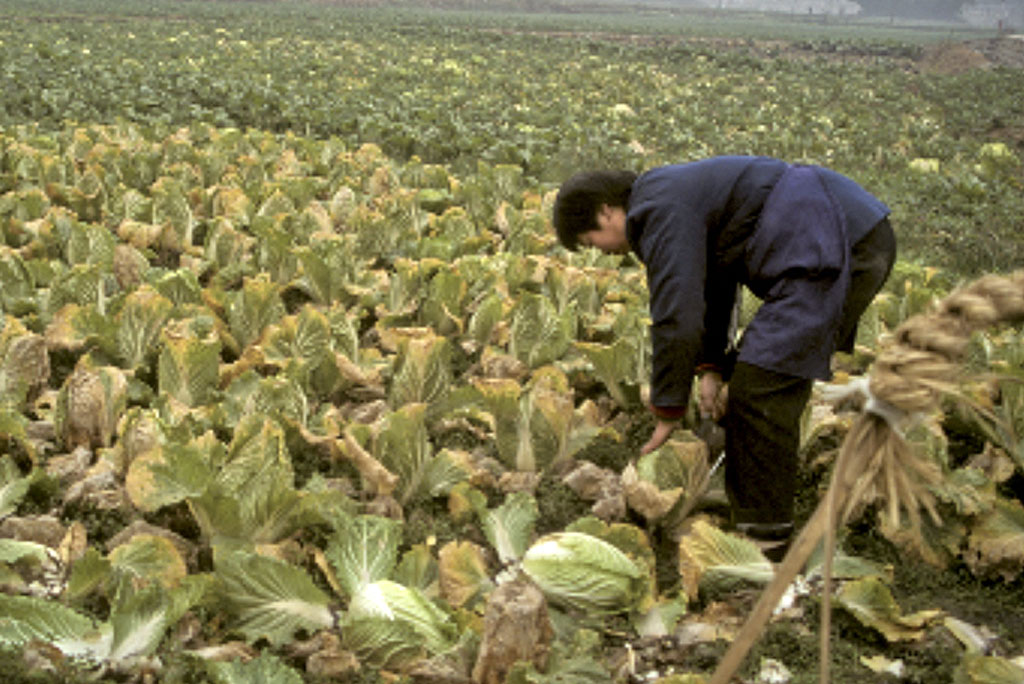East Asia Blog Series
Improving Farmers’ Income in the People’s Republic of China through E-Commerce
Akmal Siddiq, Md. Abul Basher, Jikun Huang, Jinxia Wang, Min Liu, and Huimin Wang 1 Nov 2019
E-commerce can enhance rural livelihoods with public investments in facilities and training, access to funding, and favorable market conditions.
Overview
There has been rapid adoption of information and communication technology (ICT) in the People’s Republic of China (PRC) in the past decade. It is a world leader in e-commerce. However, access to ICT is concentrated in coastal and urban areas. The government has taken steps to strengthen infrastructure and capacity as well as provide funding to support e-commerce development in rural areas.
A study by the Asian Development Bank (ADB) and the International Food Policy Research Institute (IFPRI) looks at the impact of policies and investments in e-commerce on farmers. It shows that online selling is still new to farmers, but they are receptive to it because of the potential for higher income and self-employment.
However, a successful e-commerce venture is dependent on infrastructure and location, as well as the farmers’ relevant knowledge and skills. Government initiatives in these areas are needed for e-commerce to impact positively across the agriculture sector in the PRC.
Survey Results
The development and adoption of ICT have seen a significant increase in the PRC, with the number of internet users and mobile phone subscriptions reaching 772 million and 753 million in 2017, respectively. E-commerce has experienced even more rapid growth, as PRC has become the largest e-commerce market in the world since 2013. In 2017, it posted online sales valued at RMB 5,328.8 billion (more than $700 billion).
The study examined the ICT uses and development of e-commerce in rural PRC. It used data based on the two rounds of surveys done by the CCAP in 2017 and 2018, which covered 1,128 households that represent seven provinces in the PRC.
Survey results showed significant improvement in rural ICT infrastructure, logistic services, and the use of mobile phones by farmers. In 2017, all villages in rural PRC had access to mobile phone services, with about 70% having access to the internet. Nearly 90% of adults had a mobile phone, and 71% of them used a smartphone for social networking, news monitoring, watching videos, shopping, and online payment.
Many farmers are willing to venture into e-commerce, the survey reported. The number of villages doing e-commerce increased to 63% in 2017 from 41% in 2016. That year, only 3% of farmers sold their products online, but 25% of farmers surveyed were open to doing e-commerce. Those hesitant to go into the online business cited as reasons the lack of relevant knowledge and skills, lack of storage and preservation facilities, high logistical costs, and inadequate marketing skills.
The survey showed that purchasing agricultural products online was not popular, but almost 20% of farmers are willing to transact through e-commerce for convenience and lower prices. Reluctance to buy online was attributed to a lack of relevant knowledge and skills, poor trust in online transactions, and high uncertainty on the quality of products.
An intensive e-commerce survey was also conducted in 250 households from 20 villages in Shandong and Zhejiang provinces. Results indicated that e-commerce raised farmer’s income and self-employment as online transactions resulted in higher net profits and are more labor-intensive than offline sales.
While the overall use of ICTs is impressive and rapidly growing in PRC, E-commerce is yet to get a good start. Several challenges stand in its way. A primary concern cited by farmers is the lack of facilities that can store and guarantee the freshness of products for long-distance deliveries. This limits products for online sales and the range of potential buyers.
Another challenge is in marketing, with low trust in online transactions, especially involving agricultural products. The initial investment to set up an online store is high and usually prohibitive for small farms without external support. Even after a successful startup, the retention of customers may require additional costs.
Recommendations
The study recommends six measures to facilitate the development and adoption of ICT and e-commerce in rural areas.
- Invest in the storage and transportation of agriculture products.
- Invest in capacity building by training farmers on how to operate an e-commerce business.
- Provide financial and credit support to farmers who are in e-commerce.
- Facilitate cooperation among farmers.
- Improve regulations and provide a favorable market for the development of agricultural e-commerce.
- Promote more inclusive e-commerce development in rural areas.
E-commerce is more likely to benefit the regions with better infrastructure and location and farmers who have relevant knowledge, skills, and resources. The role of government is to close the gap between the haves and have-nots to broaden and deepen the impact of agricultural e-commerce.
References
ADB, CCAP, and International Food Policy Research Institute. 2019. Information and Communication Technology for Agriculture in the People’s Republic of China. Manila.
J. Hinrichs. 2018. How Technology Plus Agriculture is Triggering Growth in the People’s Republic of China. Development Asia.
X. Li, H.C. Tang, and J. Xu. 2019. Development Asia. What Can ASEAN Learn from the People’s Republic of China’s Poverty Reduction Strategy?, Development Asia.
Author

Akmal Siddiq
Chief of Rural Development and Food Security (Agriculture) Thematic Group, Sustainable Development and Climate Change Department, ADB

Md. Abul Basher
Natural Resources and Agriculture Specialist, Sustainable Development and Climate Change Department, ADB

Jikun Huang
Professor, School of Advanced Agricultural Sciences and Director, CCAP, Peking University

Min Liu
Professor, Lanzhou University

Huimin Wang
Ph.D. student, School of Advanced Agricultural Sciences, Peking University
This blog is reproduced from Development Asia.


